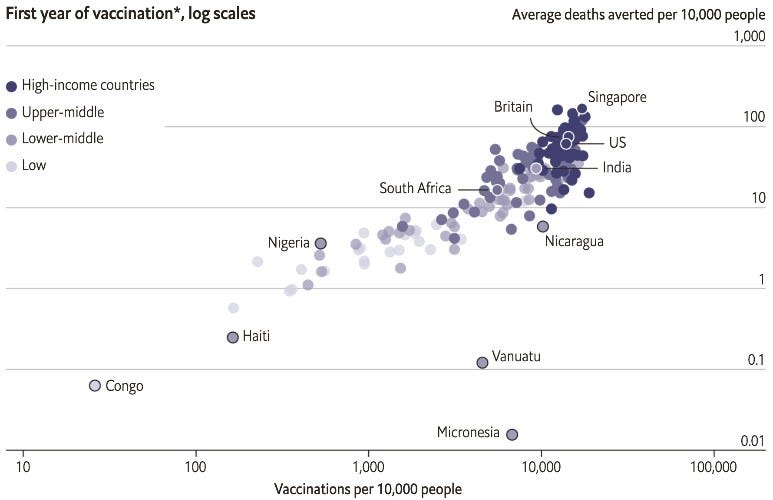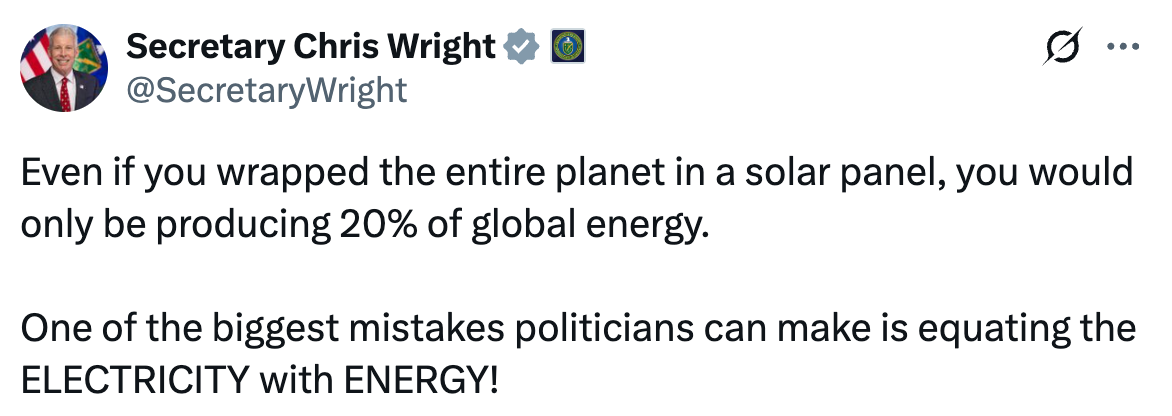Who is Trump's Beta Moron?
Looking at three contenders for the role

Chimpanzee society is structured thusly: The alpha male has first dibs on all food and chimp booty.1 Beneath him are several beta males, who support the alpha and seek his favor. We often take “beta” to mean “supplicant” or “NPR host”, but that’s not quite accurate: Betas are high in the dominance hierarchy. But the alpha gives them their status, so they spend most of their time trying to curry his favor.
I don’t imagine that the Trump administration is as sophisticated as chimp society, but there’s still a clear alpha/beta dynamic between Trump and his subordinates. That was obvious during Trump’s televised cabinet meeting, in which Trump’s underlings were so groveling that it made the Glenn Greenwald sex tape look like a profile in quiet dignity. To stay in Trump’s good graces, you need to be fawning, obedient, but most of all: You need to go in public and say shit so dumb that a normal person will experience physical pain when they hear it.
This week, three Trump betas made moves to gain Most Favored Nincompoop status. Treasury Secretary Scott Bessent, Energy Secretary Chris Wright, and Living Embodiment Of The Dangers Of Nepotism Robert F. Kennedy, Junior said things so dumb that a memorial should probably be built on the site of each statement, similar to monuments at Pearl Harbor and Ground Zero that allow people to reflect on the horrible things that occurred there. Judge for yourself which statement is the dumbest — I’ll give my two cents at the end, when we’ve traveled all the way down this river into the Heart Of Dumbass.
Treasury Secretary Scott Bessent: $300 billion in tariff revenues add one percent to GDP.
Here’s Bessent on Fox News, and he expressed these same “thoughts” in a tweet.
Taxing Americans $300 billion does not raise American GDP by $300 billion (which is roughly one percent of the American economy). That would be like saying that my household income went up because I made my son buy his own school clothes — that’s idiotic, and I did it to show him who’s boss. Even if the alleged $300 billion came in a hard cash payment from abroad — perhaps as a pirate chest full of treasure or as one, big, beach ball-sized diamond — it would still not add $300 billion to our GDP. That’s because you have to also include the tariffs’ negative effects, such as the major slowdown in manufacturing that’s happening right now.
As is often the case with astoundingly dumb statements, it’s hard to tell what the fuck is actually being said. But the least-stupid interpretation of Bessent’s words is that $300 billion in revenue would reduce the national debt, which would be good for the economy. That statement is still unbelievably stupid — the revenue comes from the American people, so there’s a corresponding negative effect on consumer spending — but it’s broadly true that there’s a loose relationship between economic health and a stable budget. But if that’s true, then why did Trump expand the debt by $3.4 trillion over ten years with the “Big, Beautiful, Bill”? According to Bessent’s logic, the tax cuts — which will cost $450 billion annually — would decrease GDP by 1.5 percent every year. I don’t remember hearing that talking point when the bill passed! You have to be astoundingly, unforgivably, cartoonishly dumb to take Bessent’s claim at face value, but Fox News did find a reporter who heard this deadbeat-dad-promising-his-daughter-a-pony-for-Christmas quality lie and just said:
Energy Secretary Chris Wright: Wrapping the Earth in solar panels would only provide 20 percent of global energy needs.
Here’s the tweet:
The incredible thing about this statement is that it’s a tweet, and federal agencies are supposed to have people who screen tweets to make sure that the administrator doesn’t say the dumbest thing in all of human history. I used to be one of those people, and even 25 year-old me — dumb as a sock full of spit and armed only with Ask Jeeves running on a Dell Dimension — would have known to flag this.
A debate quickly broke out online over whether Wright is off by a factor of 25,000 or a factor of 44,000. But Wright’s statement is actually not quite as dumb as it seems (though still very dumb): He’s trying to emphasize the distinction between electricity needs and energy needs. Electricity is only one kind of energy, and it accounts for about one-fifth of global energy use,2 so even if you had an infinite source of electric power like in that movie where Keanu Reeves solves cold fusion, Wright is saying that we’d still need to provide the other 80 percent.
But the mistake Wright makes — God, this is poetry — is that he confuses electricity with energy. If you covered the Earth in solar panels, which would capture thousands of times more energy than humans use, that energy would obviously not need to be devoted to our current electricity needs. The obvious example is cars: Electric cars become more viable if you run them on abundant and cheap solar power. Same with industrial processes; most people don’t think about industrial processes much because most of us don’t run an aluminum casting plant, but 23 percent of US greenhouse gas emissions come from industrial processes, and much of that could be electrified. In Wright’s hypothetical, most of our energy needs would be met by solar power, but Wright seems to have missed that, probably because his goal was to use a deceptively worded tweet to neg solar power so that we could continue getting our asses kicked by China.
RFK Jr.: A Pfizer study showed that the Covid vaccine doesn’t work.
Here’s Kennedy on Bill Maher:
“From all causes” are the weasel words that turn Kennedy’s statement into “dilithium crystals in your midi-chlorians” science-sounding horseshit. The study he’s talking about is this Pfizer study in which 21 people in the vaccine group died and 17 in the control group died. Kennedy says that the death rate was “23 percent higher” in the control group because the four additional deaths are…well, they’re about 23 percent of 17. The actual number is 24 percent, and by the way, Kennedy was wrong about the number of people in the trial, but if I stop every time Kennedy reveals that he sucks with numbers and doesn’t know what he’s talking about, we’ll never get through this.
The 38 people in the study who passed away died of anything, not of Covid. They could have been flattened by a moped or attacked by a chipmunk, and it seems that most were: Only three people in the trial died of Covid (two in the placebo group and one in the test group). A much larger study would have been needed to assess the vaccine’s effectiveness against death, which is why “deaths” wasn’t one of the metrics the study sought to track: It tracked Covid cases and “severe” Covid cases. And those metrics showed that the vaccine was extremely effective: 77 people who got both doses of the vaccine developed Covid compared to 833 in the placebo group, and zero people who got both shots developed “severe” Covid according to CDC definitions, while 31 in the control group did.3 The right conclusion is that the vaccine does work, which is why that’s what the CDC concluded.
Also, there is — in a sense — a study large enough to establish the vaccine’s efficacy against death: It’s called “the entire world during Covid”. The more a country’s citizens were vaccinated, the bigger that country’s reductions in Covid deaths:

Extrapolating those figures led researchers to conclude that the vaccines probably saved about 20 million lives in their first year.
You can see why Kennedy prefers numbers like “25 percent of Americans think they know someone killed by the Covid vaccine” and “52 percent of Americans think that the vaccines are causing injuries, including death.” That, of course, is not science: That’s an attempt to turn ignorance sown by people like RFK into a self-reinforcing feedback loop. But I’d propose that we not treat life-or-death decisions about public health like a game of Family Fucking Feud: Just because people believe something doesn’t make it true, and just because a worm ate RFK’s brain doesn’t mean that the rest of us have to pretend like we’re in the same boat.
Which contender is the Alpha Beta Moron? I’d give the title to Kennedy, who has developed a skill for sounding just knowledgeable enough to trick idiots into thinking that he knows what he’s talking about. And he’s clearly tricked our Idiot In Chief, who is sticking by RFK as calls for him to resign grow. So congratulations, RFK — you’ll be second in line for the chimp booty! And the other betas will need to step up their game, or the available chimp booty might become very sparse, indeed.
If there’s not a punk band called “Chimp Booty” by sundown, I will be very disappointed.
I don’t want to get into this, but whether electricity accounts for one-fifth or one-fourth or some other amount of global energy use depends on how you run the numbers. It’s around there.
You might be thinking “Wait, one person in the vaccine group died of Covid, that seems pretty severe.” That person only received one dose of the two-dose shot.



I don't think you're being fair to Kennedy. I don't think any of his stupidity is to curry favour. His stupidity is simple stupidity. He is a true believer.
Bessent is my pick because he definitely knows he’s peddling total nonsense. He might not actually be a moron in real life, but he’s willing and eager to play one on TV, so that makes him the most “beta.”
Edit: he gets bonus points for looking like a smug earthworm in a wig.